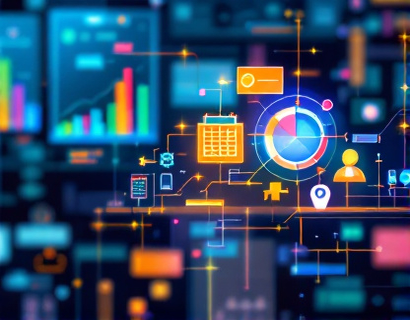AI-Driven Mental Health Insights: Revolutionizing Access to Specialized Psychiatric Services
The integration of artificial intelligence in the mental health sector has opened new avenues for delivering specialized insights into psychiatric services and the broader mental health industry. This innovative approach leverages AI technology to create a chatbot capable of providing accurate, safe, and tailored information to a diverse audience. The chatbot is designed to cater to various user groups, including children, students, mental health enthusiasts, educators, and healthcare professionals, ensuring that the content is accessible and appropriate for each demographic.
Understanding the Need for Specialized Mental Health Information
The mental health landscape is complex and ever-evolving, making it crucial for individuals to access reliable and up-to-date information. Traditional sources of mental health information, such as medical journals and professional conferences, often pose barriers to access due to their specialized language and subscription requirements. An AI-powered chatbot addresses these challenges by offering a user-friendly interface that demystifies psychiatric services and industry knowledge, making it easier for everyone to engage with mental health topics confidently and responsibly.
Ensuring Content Accuracy and Safety
One of the primary concerns when providing mental health information is ensuring its accuracy and safety, especially for vulnerable users like children and students. The AI chatbot incorporates rigorous content verification processes to guarantee that the information provided is not only accurate but also safe for all users. This involves cross-referencing data from reputable sources, adhering to medical guidelines, and continuously updating the database to reflect the latest research and best practices in mental health.
Tailored Content for Diverse Audiences
The chatbot is designed to deliver content that is tailored to the specific needs and understanding levels of different user groups. For children and students, the language is simplified, and the content is presented in an engaging and educational manner. Mental health enthusiasts and educators receive more detailed and comprehensive information, while healthcare professionals access in-depth insights and clinical data. This personalized approach ensures that each user receives information that is both relevant and useful.
Content for Children and Students
For younger users, the chatbot uses age-appropriate language and visuals to explain mental health concepts. Topics such as recognizing emotions, understanding stress, and knowing when to seek help are presented in a way that is easy to grasp. The chatbot also includes interactive elements like quizzes and games to make learning about mental health fun and engaging. This approach not only educates but also helps reduce stigma and encourages open conversations about mental health among young people.
Information for Mental Health Enthusiasts and Educators
Mental health enthusiasts and educators benefit from more in-depth content, including recent research findings, case studies, and best practices in mental health care. The chatbot can provide detailed explanations of various psychiatric conditions, treatment options, and the latest advancements in the field. For educators, the chatbot offers resources and strategies for supporting students with mental health challenges, creating a safe and inclusive learning environment.
Resources for Healthcare Professionals
Healthcare professionals, including psychiatrists, psychologists, and nurses, can access the chatbot for continuous professional development. The platform offers the latest clinical guidelines, research articles, and case studies, all verified for accuracy and relevance. The chatbot can also assist in finding specialized psychiatric services, helping professionals refer patients to the most suitable care providers. This feature is particularly valuable in rural or underserved areas where access to specialized care may be limited.
AI-Powered Insights and Personalization
The core strength of the AI chatbot lies in its ability to provide personalized insights based on user interactions. By analyzing user queries and preferences, the chatbot can offer tailored recommendations and resources. For instance, a user seeking information about anxiety disorders will receive detailed explanations, coping strategies, and local support groups. This level of personalization ensures that users receive the most relevant and helpful information, enhancing their overall experience and engagement with mental health topics.
Building Trust Through Transparency
Trust is paramount when dealing with sensitive topics like mental health. The chatbot is designed with transparency in mind, clearly indicating the sources of the information provided and the methods used to verify its accuracy. Users can access detailed explanations of how the chatbot operates, the data it uses, and the steps taken to ensure content safety. This transparency builds trust and encourages users to engage more deeply with the platform.
Supporting Mental Health Awareness and Education
The chatbot serves as a valuable tool for promoting mental health awareness and education across various platforms and communities. By providing accessible and reliable information, it helps break down barriers and encourages more people to seek help when needed. The platform can be integrated into schools, community centers, and healthcare settings, making mental health resources more widely available and fostering a culture of openness and support.
Challenges and Future Directions
While the AI chatbot represents a significant step forward in mental health information delivery, there are ongoing challenges to address. Continuous updates to the knowledge base are essential to keep the information current and relevant. Additionally, expanding the chatbot's capabilities to include multilingual support and more advanced interactive features can further enhance its utility. Collaborations with mental health organizations and research institutions can also enrich the content and ensure it aligns with the latest scientific findings.
Conclusion
The integration of AI technology in mental health services has the potential to transform how we access and engage with psychiatric information. By providing accurate, safe, and personalized content, the AI chatbot empowers users to take control of their mental health journey. Whether for personal learning, professional development, or supporting others, this innovative tool plays a crucial role in fostering a more informed and supportive mental health community.











































